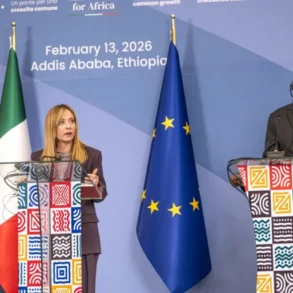Here is a word-based analytical breakdown of the Tax Reform Act in Nigeria. It highlights the key terms and what they signify.
1. Exempted
The word appears multiple times and is central to the Act’s intent. It signifies relief, particularly for the poor and small business owners. By exempting low-income earners (under ₦800,000 annually) and small businesses, the government signals a progressive taxation shift, prioritizing equity and fairness.
2. Reform
This is a transformational word, indicating change from an existing system. In this context, it implies an overhaul of Nigeria’s tax structure to promote inclusiveness, efficiency, and economic growth.
3. NRS (Nigeria Revenue Service)
Replacing FIRS, this rebranding and restructuring signals a centralization of tax and revenue collection. By empowering the NRS to handle revenues from Customs, NPA, NUPRC, and NIMASA, the government is aiming for streamlined operations, though, this also suggests a potential power concentration that must be closely managed.
4. Mandate
Used in the context of NRS, it denotes official authority. Here, it signifies a broadening of responsibilities, which will require new administrative structures and accountability mechanisms.
5. 25%
This figure appears in two contexts: as a personal income tax rate for the ultra-rich (₦50 million and above) and the revised company income tax for larger businesses from 2026. It suggests a calibrated tax approach by encouraging growth while ensuring the wealthy contribute significantly.
6. Exemptions
Used for VAT on essential goods and services like food, medicine, education, and electricity. This reflects a deliberate pro-poor policy direction, insulating the vulnerable from indirect taxation on basic needs.
7. Development Levy
A new term introduced in this legislation. It reflects a targeted funding strategy using a 2–4% levy to support national development institutions like TETFund and NASENI. While noble in intent, the word also raises questions about implementation clarity and compliance enforcement.
8. No increment
This phrase is emphatic. It likely meant to calm public anxiety. It confirms that VAT and corporate tax rates remain stable, dispelling fears of a hidden tax hike.
9. Support
This appears subtly but powerfully, especially in relation to where the new development levy will go; student loans, education, innovation, and tech development. The word conveys a government intent to invest in the future and stimulate development, not just collect revenue.
10. Starting in 2026
This timeline reference suggests phased implementation. It allows time for planning, adjustment, and possibly policy refinement. It also hints at a forward-thinking strategy, rather than a shock-and-impose method.
Conclusion
The language of the Tax Reform Act is strategically structured to balance equity, growth, and revenue generation. Words like exempted, mandate, support, and development convey a socially conscious tone, while terms like 25%, NRS, and no increment suggest fiscal responsibility and stability.
The overall diction reveals a policy aimed at restructuring Nigeria’s tax system for broader inclusion and efficiency, though, successful execution will be the true test.








